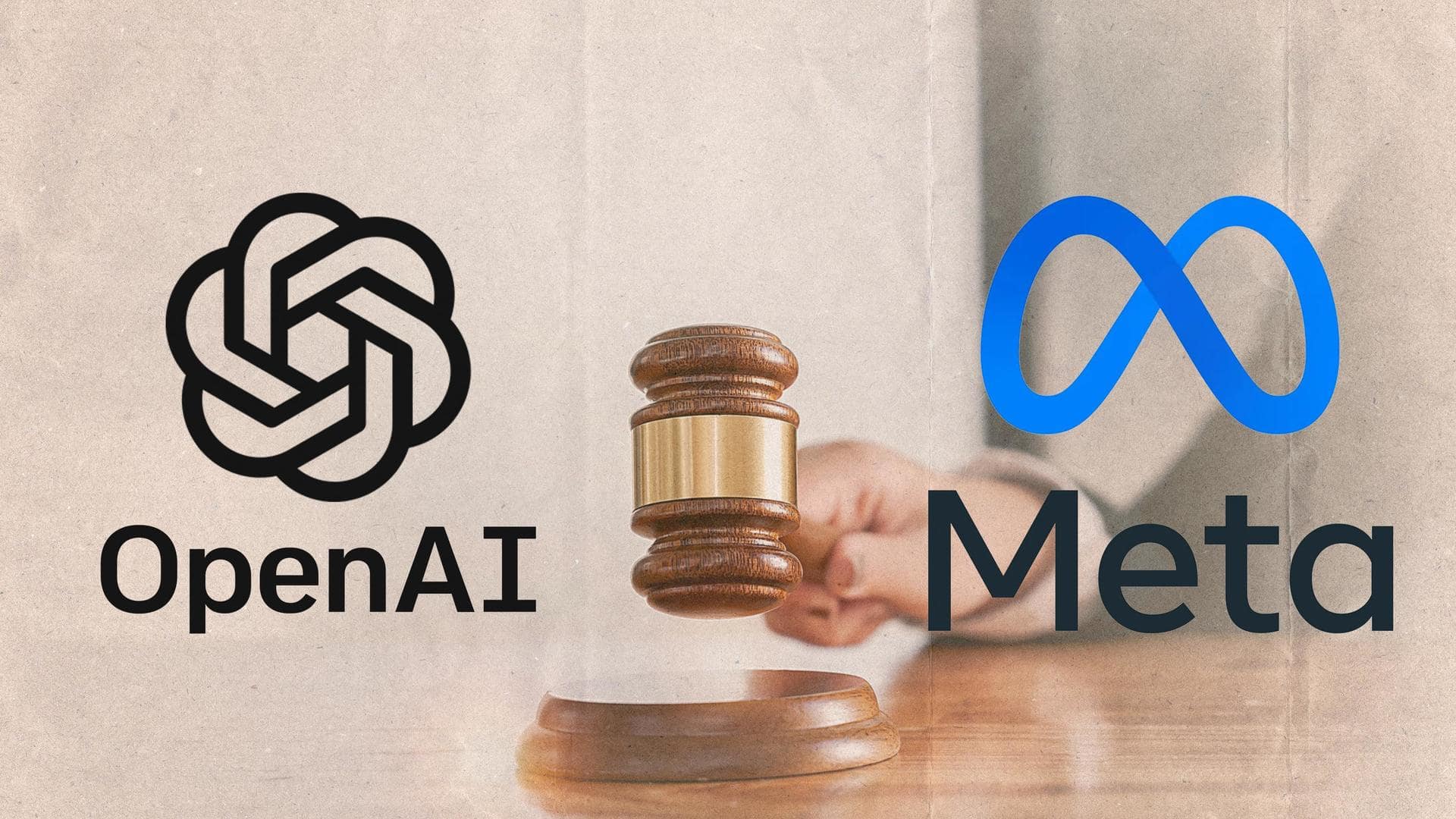
OpenAI, Meta face lawsuits by authors: Here's why
What's the story
The world has been amazed by how generative AI tools can generate different types of content. AI tools can thank the large datasets used in their training for that. However, this ability of AI has given rise to a new copyright-related challenge. Now, some authors, including Sarah Silverman, Christopher Golden, and Richard Kadrey, have sued ChatGPT creator OpenAI and Meta over copyright infringement claims.
Context
Why does this story matter?
Generative AI tools can generate anything from novels and essays to music and movie scripts. But they depend on existing content produced by humans to generate texts, images, and more. Some of the content used for training AI tools are copyrighted material. More often than not, AI companies do not obtain the required permissions to use copyrighted material. That's where the lawsuits begin.
Lawsuit
OpenAI, Meta allegedly trained AI models on illegal sites
The authors have filed separate lawsuits against OpenAI's ChatGPT and Meta's LLaMA. The suits claim that books are an important part of training generative AI models. They allege that ChatGPT and LLaMa were trained on illegal datasets, including "shadow library" websites like Z-Library, Library Genesis, Bibliotik, and Sci-Hub. The plaintiffs claim their books appear in the dataset sourced from these sites.
Evidence
Plaintiffs presented exhibits to show infringement
The complainants presented different exhibits to show why they believe OpenAI and Meta infringed copyright. According to the three authors, ChatGPT summarizes their books when prompted. They say they were never asked for permission to reproduce their content. In Meta's case, they refer to a paper detailing LLaMA's training data. One of the datasets used for training LLaMA, ThePile, used information from BiblioTik.
Claim
Authors want jury trial, statutory damages
Silverman, Golden, and Kadrey said they did not consent to the use of their books as training materials for the companies' AI models. They allege copyright infringement, unjust enrichment, negligence, and unfair competition. The authors are seeking a jury trial, statutory damages, and restitution of profits, among others. The lawsuits were filed in the US District Court of Northern California.
Traffic fell
ChatGPT website's traffic fell for first time
Meanwhile, the ChatGPT hype is possibly on the decline. According to data from analytics firm Similarweb, ChatGPT website's traffic fell by 9.7% in June, marking the first time the chatbot's number of visitors fell since its launch. The amount of time users spent also reduced by 8.5%. However, it remains the most visited standalone AI website.